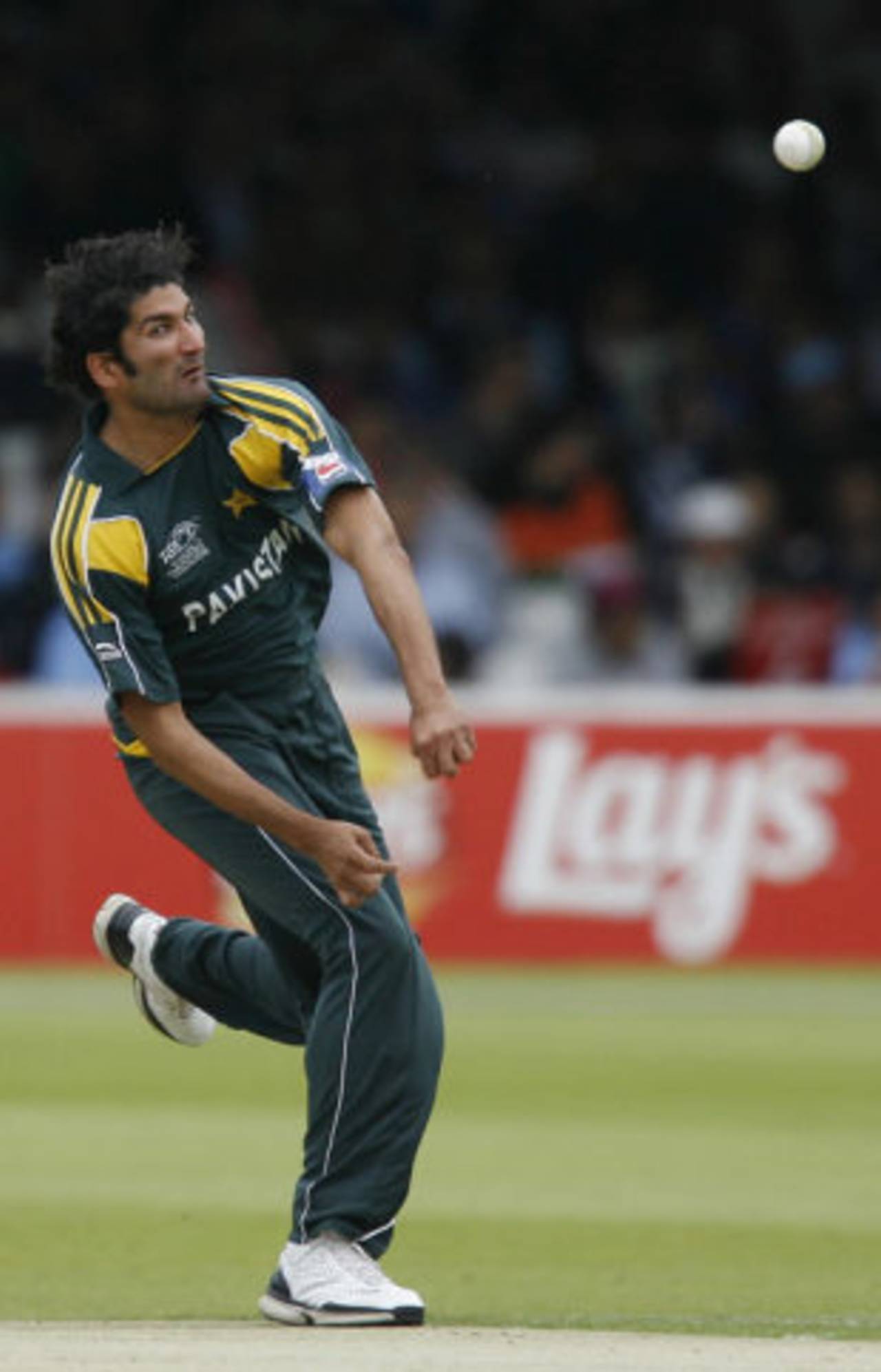Indisciplined Pakistan gift game away
Wayward bowling and some notoriously slack fielding cost Pakistan their match against Sri Lanka at Lord's
George Binoy at Lord's
12-Jun-2009

Sohail Tanvir let Sri Lanka get away to a cracking start • AFP
Pakistan could have been undone by several factors beyond their control at Lord's - an unfavourable D/L situation, a blitz from Sanath Jayasuriya, or a mesmeric spell from Muttiah Muralitharan for instance. But the weather was fair, Jayasuriya fell for 26 and Murali took only 2 for 28. Instead, their defeat was down to issues within their grasp: wayward bowling - Sohail Tanvir was the most culpable - and their notoriously slack fielding, both facets vital to Twenty20s.
To call Tanvir's first over in such a high-pressure contest appalling would be an understatement. He bowled 11 balls in all - three wides and two front-foot no balls which resulted in free-hits - and three of them were dispatched to the boundary. He didn't improve in his second, over-stepping again and bowling two more wides. Opener Tillakaratne Dilshan said the ball was "seaming and bouncing" in the first few overs and yet, thanks to Tanvir's largesse, Sri Lanka had scored 32 after three. According to Dilshan, a score of 140-plus was a good one on this pitch, and Sri Lanka were handed the momentum to achieve that on a platter.
Pakistan's problem with extras isn't anything new. It's a deficiency that their former coach Geoff Lawson strove to eradicate without consistent success. Conceding an abundance of extras in any form of cricket is unforgivable but the shorter the format, the more damage it causes.
"We're struggling at the start. In every single game we have trouble at the start," Younis said. "Sohail Tanvir is our top player but he's struggling. Back to back no-balls in this form of cricket, free-hits … It's very crucial in this form of cricket."
Extras apart, Pakistan's out-cricket, an aspect of the game Ian Chappell said would cost them in this tournament, was below standard. Their fielding and catching against Sri Lanka had risen from the depths plumbed against England but there were 50-50 chances which an astute fielder could have converted into a wicket.
Shahid Afridi took a while to unleash a throw from short fine leg that could have run out Chamara Silva. Silva made only 8 but Twenty20 matches have been won and lost by smaller margins. A more costly lapse occurred earlier in the innings when Shoaib Malik's throw from point missed the stumps at the non-striker's end with Dilshan not even in the frame. It wasn't Malik's fault, though, for neither the bowler, Umar Gul, nor the fielders anticipated the run out and made an attempt to get to the stumps to collect the throw.
Paul Collingwood, after the defeat to South Africa on Thursday, said that it had been hard for England to fight back because of the way South Africa fielded. Earlier in the day, Brendon McCullum had scored two direct hits and taken a splendid catch to wreck Ireland's chances of upsetting New Zealand. Sri Lanka wouldn't have felt that danger today because Pakistan are simply not that intense on the field. Younis, though, said the fielding "wasn't bad" against Sri Lanka, before adding that Pakistan were at "about 70-75%".
Sri Lanka, however, were at 100%. They effected two run outs and held all their catches. Crucially, they gave away only three extras and their bowlers didn't over-step even once. Pakistan had to bowl 13 extra deliveries, three of which were free-hits. They conceded 20 runs through sundries and eventually lost by a margin of 19.
George Binoy is a senior sub-editor at Cricinfo